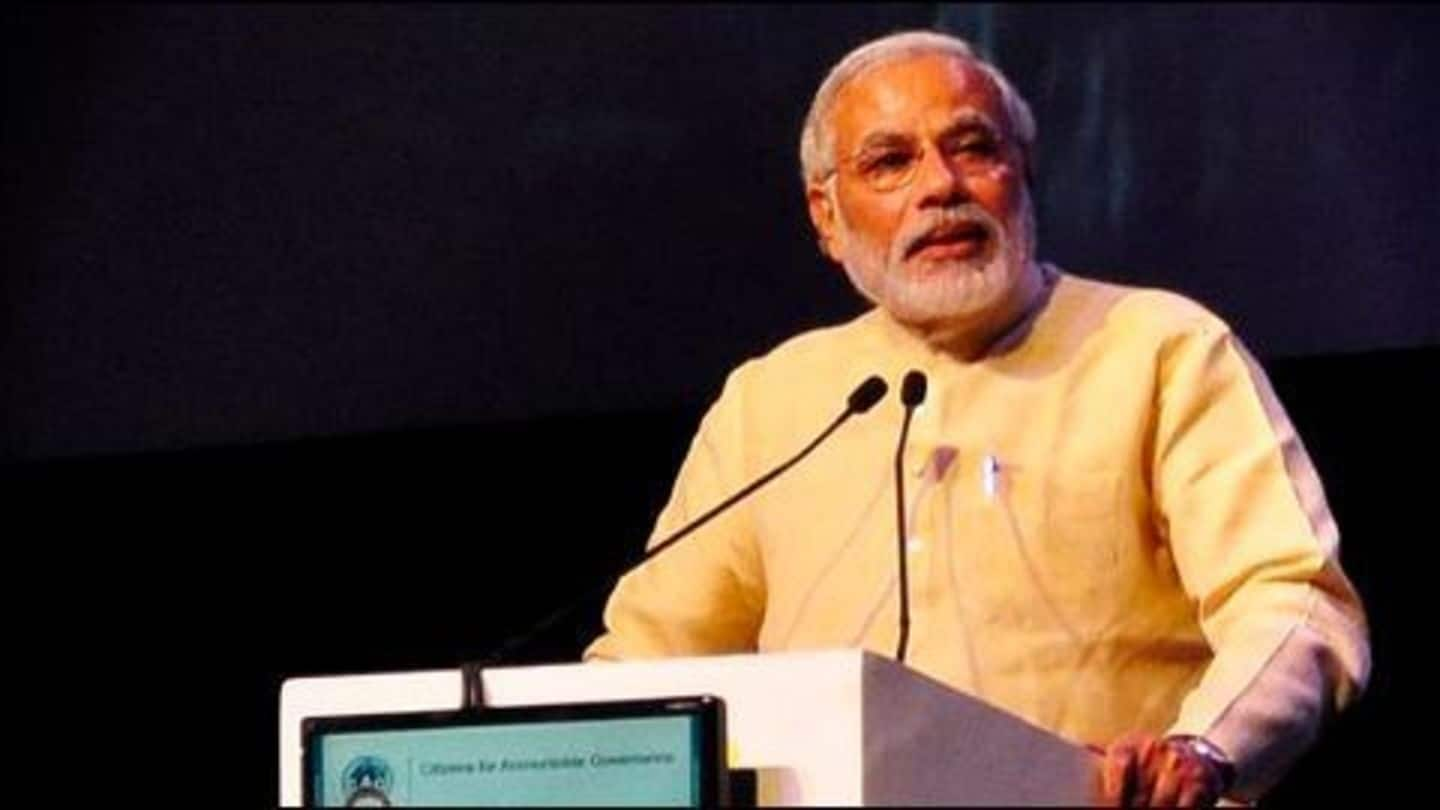
Two years since Modi became the Prime Minister
What's the story
An IPSOS survey shows that 62% of urban Indians gave thumbs-up to the Modi-led government for a good job done by the end of second year. It has been two years since Modi was sworn-in as the 15th Prime Minister of India. His government introduced several policies since then; however, a sector-wise analysis of these policies gives a better picture of the government's performance.
Hits
Performances that gave a boost to the government
After the NDA came into power, there have been several 'hit' performances by the government. The list includes: Yemen Evacuation-rescued stuck Indians; Jan Dhan Yojana financial inclusion scheme; LPG subsidy 'Give it up' campaign; and Swachh Bharat Mission sanitation project. Also, India-Bangladesh land boundary agreement; Bankruptcy code; Real Estate regulation; Yoga Day; Mann Ki Baat; and Digital India are some of the hit performances.
Misses
Not-so-good performances of the Modi-led government
There are some performances by the government that faced criticism. These include, handling of the Pathankot Attack; failed attempt to add JeM chief Masood Azhar to the UN list of proscribed terrorists; unimproved India-Pak relations; deteriorating relations with SAARC neighbours; and protests in Central Universities. The black money issue, GST bill, Land Ordinance, Women's bill; President's rule in Uttarakhand also drew severe criticism.
Finance, Power
Finance and Power ministries perform well
Finance and Corporate Affairs Minister Arun Jaitley fared well; GDP increased by 7%, India became the fastest growing economy, and inflation declined. Power, Coal and Renewable Energy Minister Piyush Goyal performed well because of the coal mine auctions, solar-power tariff reduction, and gas-based power's revival. Commerce and Industry Minister Nirmala Sitharaman received a blow when the global-economy slowed down, leading to decrease in exports.
Aviation, Communication
Civil Aviation and Communication sectors fared well
Civil Aviation Minister Ashok Gajapathi Raju's performance was good as the reduced fuel prices led to a robust rise in the passenger traffic and increased the sector's earnings. Communications Minister Ravi Shankar Prasad aimed to provide better services as he auctioned the spectrum, allowed trading & sharing, operationalised mobile number portability, and launched 4G services. However, call drops remained a major issue.
Investor Market
Top 15 corporate houses face losses
According to ETMarkets.com, investors of the top 15 corporate houses of India have lost 17% of their wealth since 26 May'14. The combined market value of these corporate houses is currently Rs.32 lakh crore, which once stood at Rs.37.44 lakh crore before Modi took the oath. Reportedly, Ambani's, Jindal's, Adani's, Vedanta, Tata and other top 15 corporate houses have seen 51% market value erosion.
Entrepreneurs
Boost to the Indian Startup system
Prime Minister Modi launched some schemes that gave a significant boost to the entrepreneurs in India. 'Micro Units Development Refinance Agency (MUDRA) Bank' was initiated to provide credit up to Rs.10 lakh to small-scale entrepreneurs. On 69th Independence Day, Modi announced 'Startup India-Standup India' initiative to boost entrepreneurship among Indian youth to facilitate startups and thereby to create a network of startups in India.
Personal
Defence budget increased; efforts to improve international ties
In 2015, the government increased the defence budget by 11%, to expand and modernize Indian Armed Forces' machinery. After becoming the Prime Minister, Modi visited 30 countries so far to take India's ties with other nations to a new level.
Awaited Performances
Some performances yet to be rated
The government kickstarted some schemes that aren't rated, as it is too early to decide whether they are hits or misses. Smart City scheme; Make in India; EPFO reforms; One Rank One Pension scheme; and the NITI (National Institution for Transforming India) Ayog. Power Ministry's UDAY (Ujwal DISCOM Assurance Yojana); Aadhar Bill; Rejuvenation River Ganga; Bullet trains; Welfare schemes (insurance, pension, girl education, etc.)
Major Setbacks
Expectations not met by the government
According to experts, there are three major setbacks for the Modi-led government. During the last two years, there has been a severe banking sector crisis, which has upset India's economic picture. The clearance of the GST bill remains a disappointment to international investors. Despite several foreign visits, Modi couldn't attract much investor confidence, which is evident from the shallow private investments.
Withdrawn Policies
Policies announced and withdrawn in last two years
The NDA government announced some significant policies but withdrew them later. The list of such policies includes 'Licensing for genetically modified seed technology', 'Tax on Employee Provident Fund withdrawals, interest rate and age limit', 'Encryption Policy', and a 'Public Debt Management Agency'. Also 'Minimum Alternate Tax on Foreign Portfolio Investors', banning porn websites, 'Income tax return forms', 'Capital infusion', 'Land acquisition act' were withdrawn.